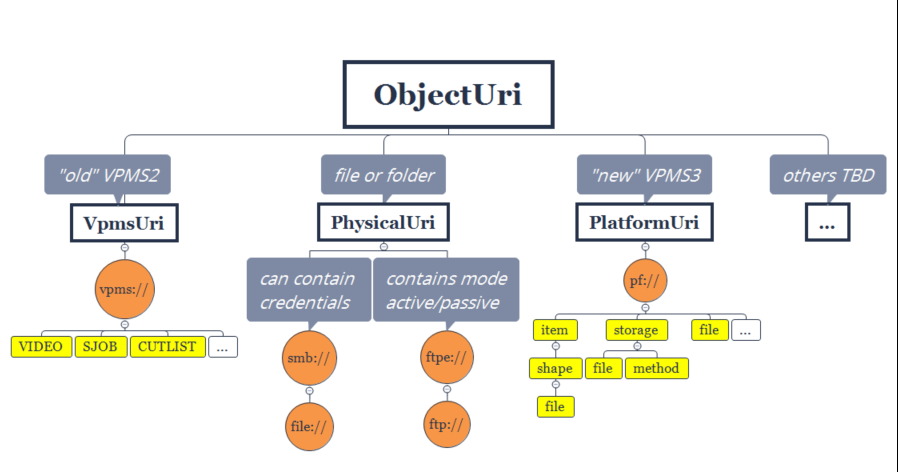Basic Data Model
The following section covers the basic data models relevant for VidiFlow API.
PlatformUri
It is essential for users wishing to integrate against VidiFlow, that a comprehensive understanding of VidiFlow's specific URI concept be achieved. This becomes particularly relevant when it comes to naming and handling the input and output URI parameters for tasks.
DIAGRAM: ObjectUri Model |
 |
The highest level is occupied by the "ObjectUri". All other subsequent children URIs derive from the "ObjectUri".
ObjectUri |
|
|
Children URIs |
|
|
VpmsUri | PhysicalUri | PlatformUri |
Scheme: "vpms" | Schemes: "smb", "ftpe", "file" or "ftp" | Scheme: "pf" |
When naming a parameter for URI, it is important to consider the nature of the different URI before choosing.
VpmsUri: if this is a Worker Based VPMS URI (VPMS2).
PhysicalUri: if the input URI is only valid if it has one of the following schemes; "smb", "ftpe", "file", or "ftp".
PlatformUri: if the input URI identifies a VidiFlow /Vidispine object.
ObjectUri: if the allowed runtime content may be more than one of the children types.
